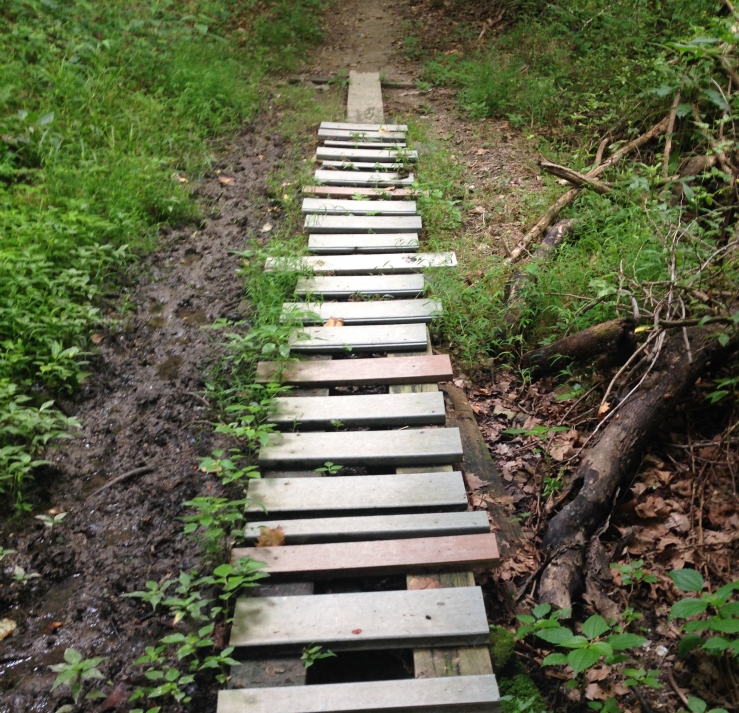
This post is a follow-up to Saturation Point, which introduced the subject of my relatively new sobriety. You may want to read that piece first, if you haven’t already (but you certainly don’t have to).
A couple years ago I started writing about my drinking. Scraps of paper, abandoned journals, and unfinished computer files contain those first attempts at documenting my relationship with alcohol. That was back when I wasn’t sure if quitting drinking was in my future.
One exercise I created at the time was a series of five questions designed to nudge me toward making a decision. What would it be: Ditch the booze altogether or try harder at moderation?
During this period, I completed several Whole30s — a program focused on eliminating certain food groups from your diet for a month, including alcohol. Thanks to Whole30, I discovered that I felt much better when I didn’t drink. Yet I couldn’t wait to pour that first glass of Pinot Grigio every time I crossed the 30-day finish line.
I contemplated my answers to those five questions over and over again in my head, but I never got very far writing them out. Now that I’m five months sober, I’m finally going to answer them, as a promise I’ve made to myself to continue exploring the path I’ve taken and to shore up where I’ve landed.

1. Why did I first start drinking?
As a shy girl who matured late, I missed out on those early years of adolescence when my friends were holding hands with guys and learning how to French kiss. I was short and scrawny with big frizzy hair, so I spent a lot of time watching from the sidelines as my friends flirted and boys circled.
By the time boys started noticing me, I was painfully behind in experience. If I wanted to catch up, I was going to have to jump into the deep end of the pool without ever trying out the shallow side. Alcohol came along at just the right time, when I needed some manufactured courage.
It seemed like almost everyone had started drinking by 16, so despite coming from a very conservative family, I didn’t much question whether to drink or not. I just did. And in addition to lowering my inhibitions and making even the most boring nights seem fun and adventurous, drinking helped me tap into some deep emotions that I had been stuffing down.
Yes, I was that girl — the one who frequently ended the night sobbing in the back seat of someone’s car. Alcohol allowed me to mourn the fact that I didn’t know my father, that my mother suffered from depression, that I didn’t feel normal. The stress of my home life would pour out through my tears, and being drunk meant I didn’t care who witnessed my meltdowns. Obviously this was not the ideal way to address those issues, but it felt good at the time — and thus the pact between me and the drink was written.
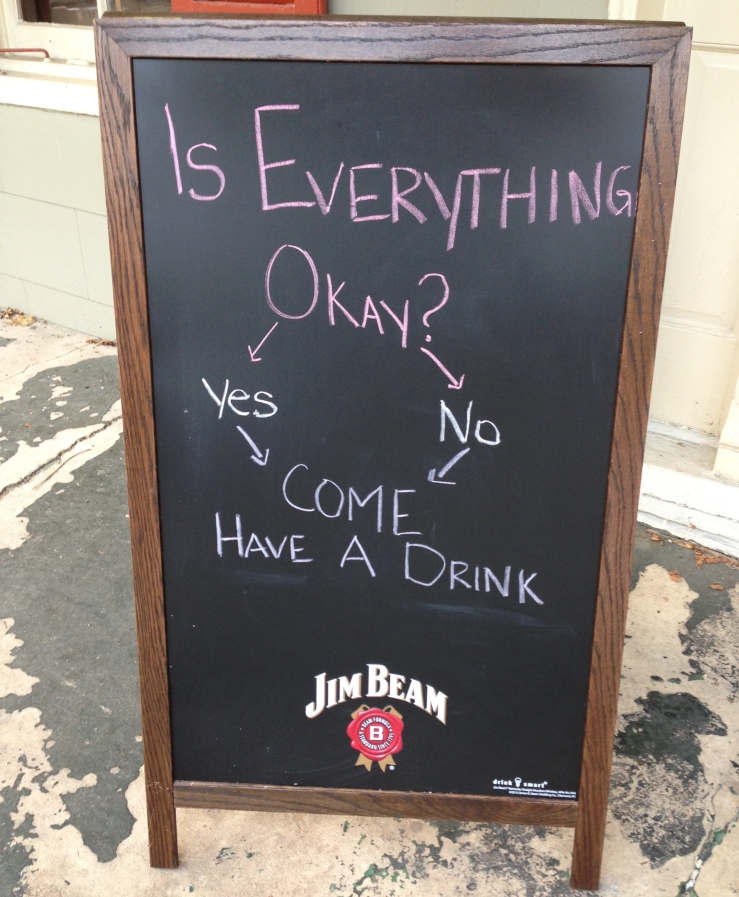
2. Why did I continue drinking regularly?
At college, drinking was practically a required subject. The drinking age was not yet 21 — it actually changed from 19 to 21 while I was in college, but for those of us who had already turned 19, the state of Florida graciously grandfathered us into the world of legal drinking.
We had a bar on campus, and alcohol advertising was everywhere. The fraternities and sororities took turns holding weekly campus-wide parties with low cover charges and all-you-can-drink beer.
No one in the dorms cared if you stumbled home late and threw up in the waste basket. No more sneaking out or worrying about your mom catching you. Not much driving was required — everything you needed to get trashed was within a small radius.
In other words, college was like an Olympic training camp for drinking, preparing me for an adulthood of medal-worthy alcohol consumption.
I moved to New York City right after college — a wise move for someone who wanted to be able to go out whenever the mood struck her, but didn’t want to drink and drive.
I loved that city. Among many other fabulous things, I loved the ability to go into a restaurant by myself, sit down at the bar, and within minutes be engrossed in a conversation with the bartender or someone else at the bar. The camaraderie that came with drinking created an instant connection. A warm buzz and a temporary new friendship made this insecure girl feel like the grown-up, sophisticated woman I wanted to be.
As I gained self-confidence, and the need to unearth my sadness diminished, drinking created a new purpose for itself in my life. I don’t think I explicitly used alcohol as a means to numb or escape, nor was I an every-day or an all-day drinker. But somewhere along the line drinking became a reliable release valve for ordinary stress.
After two or three alcohol-free nights, the pressure would build up, and I would need a night of drinking. Work was busy, whatever relationship I was in was complicated, mom was mad because I hadn’t called, the apartment was a mess, you name it. Good thing my friends were standing by to go out for drinks. And if they weren’t, I wasn’t afraid to drink alone. In fact, sometimes I preferred it.
After examining this release valve effect instead of just surrendering to it, I’ve come to realize that the alcohol itself was creating the pressure just as much as the daily stressors in my life. I had developed a dependency that needed to be fed every 72 hours or so. And when it was hungry, it was ravenous.
You know that feeling when you have to pee really bad, and how when you get to the bathroom, it gets infinitely worse? So bad that it feels like you might not get your pants down in time? Well, that’s how I often felt when it had been a while since I had last tied one on, and I was headed to the bar, and I knew that a drink would soon be in my hands. I could physically feel the anticipation welling up inside of me, my heart beating, my breath growing shallow and quick, adrenaline flowing.
This reaction was not unusual to me. My drinking seemed average, or at least in the high range of acceptability. For years I did not question that this hobby-slash-habit played such a prominent role in my life.
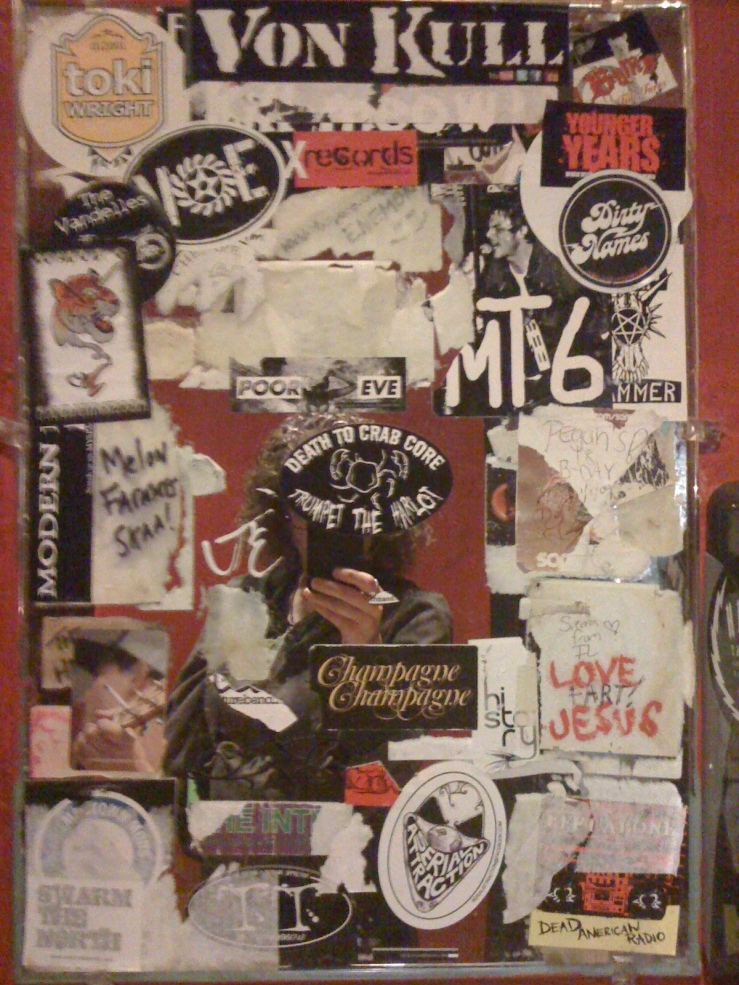
3. What are the reasons I should stop drinking or at least take a long break?
Starting from early childhood I was a worrier. As soon as I learned about serious diseases like cancer, I was convinced that I would develop one. So at some point in my early 20s I did worry briefly that I might have a drinking problem. But this concern felt like all my other fears and phobias of getting sick and dying — overblown and not based in reality.
Around the age of 24, I responded to an ad looking for volunteers to take calls for a suicide hotline. Why I thought this was a good idea given my typical level of anxiety is a subject for another time. Anyway, we recruits had to attend two day-long Saturday trainings before we could get on the phones. At the end of the first Saturday, they asked us to attend an AA meeting on our own time during the upcoming week, and then we would talk about our impressions at the next training.
I was excited to go to the AA meeting. Maybe this was what I needed, maybe I would realize I was an alcoholic and just keep going to AA meetings. But the people there sounded nothing like me. They had stolen from work, left children in cars while they scored, set fire to their homes, and been arrested.
I left that meeting feeling elated. I was not an alcoholic. I even bought a six-pack of tall boy Budweisers on my way home to celebrate my non-problem. (A quick aside: I never did complete my training for the suicide hotline. I called them before the next Saturday and chickened out.)
That AA experience sustained me for close to a decade: I was fine. My drinking was commonplace, dull even.
And yet, unpleasant incidents piled up over the years. Fighting with friends, embarassing myself in front of co-workers, public blackouts. Oddly enough, none of these occurrences were sufficiently unsavory to get me to stop indulging for any serious length of time.
What were the reasons that led me to finally say enough? Age, vanity, and the feeling of being stuck in a thick sludge of my own making.
As I reached middle age, I knew that I needed to start taking better care of my health. I quit smoking, started eating better, tried again to find a form of exercise that I could stick with, and began meditating. Alcohol consumption was the next natural target. Not only would quitting drinking improve my health, but it might slow down the visible signs of the aging process. Having looked young all my life, the idea of appearing old was not sitting well with me, and here was something that could help.
Not only that, I wanted to go to sleep with a clear head and wake up with a clear head. Never again did I want to stay up late listening to music in the bathroom, drinking my husband’s beer because I had run out of wine. Never again did I want to wake up in the middle of the night not remembering how I got from being passed out on the couch to being half dressed in bed, not remembering pouring that last drink now sitting on the bedside table.
Still, it was my desire to write more, read more, do more that convinced me I needed a break. I needed to make space in my life to fall in love with myself, and this decades-long habit was getting in the way.
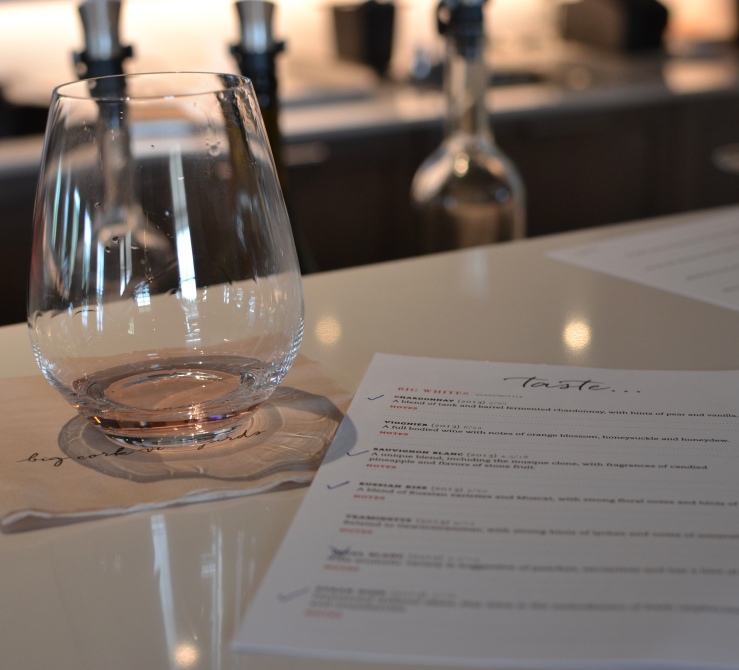
4. Are there reasons I might want to try moderating my drinking instead of quitting?
First, there are the aesthetics. The sound of a wine glass being set down on a cool marble bar. The sight of pale wine poured into the glass, reflecting the light. The feel of the delicate rim of the glass against my lips. The taste of the dry wine after sucking down an oyster. Now and then, it would be nice to have a glass or two in the perfect setting. Why reject this magic dance of mood, color, texture, light, and sound, your sly brain asks.
Then there’s association. For many of us (and, let’s face it, society at large), the consumption of alcohol is tightly woven into many communal events: Weddings, birthdays, anniversaries, holiday parties, watching the Super Bowl, participating in drinking-friendly sports (bowling, pool, darts, poker, cornhole, bocce, etc), the list goes on. How does one celebrate a promotion, a new job, or a retirement without a drink? Why wouldn’t I want to be able to mark a truly special occasion by lifting a glass of an intoxicating beverage, as I did so many times?
Finally, there’s the social aspect. Drinking binds people together, almost immediately and with little effort (a sign, I believe, that the affinity is partly an illusion).
When others are drinking, and you’re not, something is lost. You feel separate. The laughter is slightly different on each side. And as the evening progresses, the difference grows. The experience of being the only teetotaler (or one of the few) is not the end of the world, but it is an adjustment. What a relief it would be to grab a drink and join the crowd. To sigh, to loosen your shoulders, to succumb, and see what happens.
This is going to sound pathetic to some, but it has actually saddened me to admit to myself that I will never again sit in a smelly pub and drink all day with my friends because we decided that the street festival wasn’t nearly as interesting as boozing and talking. I won’t squint at the daylight as someone opens the bar door. There won’t be that moment when we all decide to order yet another. No more tipsily moving onto our next haunt, then finding that drunk second wind back at someone’s place and staying up late, telling those same old stories one more time. I can’t lie, drinking is one of the easiest hobbies you’ll ever cling to, and it has its charms.

5. Why would it be preferable to quit drinking entirely?
My husband thinks that I’m not an alcoholic, and therefore he doesn’t understand why I would choose the sober life. Why would I deny myself the joys of drinking when I don’t have a serious problem?
Now that I’ve seen the other side, I don’t know how I could choose otherwise. I feel ike someone turned the music on inside of me. Not all the time, of course. Life is still stressful and frustrating, and I don’t always react the best possible way when challenging stuff happens. I reserve the right (and ability) to disappoint myself — that doesn’t go away.
I’ve never experienced a serious depression, but my mother has. I live with the sense that there is a seed of darkness inside of me. I have long worried that the abyss could swallow me one day. The idea of letting go and sinking into the darkness is tempting — to let it take you over so you no longer have to fear it.
But that’s not who I am. That’s not who most of us are. Sometimes it takes a long time to get the message that we’re drowning, and sometimes we have to go under very deep. But we all have it inside us to pull ourselves into the light.
At first it was hard, making the adjustment to being a non-drinker. I reminded myself that I was doing this so I could have more time to develop new hobbies, new interests. I had given alcohol decades of my precious attention. I owed it to myself to find some more productive, fulfilling pastimes.
As the days and weeks went on, it got easier. Around the 90 day mark I got a surge of energy and satisfaction. It happened again at 120 days. Maybe that feeling is physiological — my cells coming back to life. Or maybe it’s my ego developing some swagger. Either way, it feels a lot like a wicked crush. Wooing yourself is far underrated.
I no longer spend time thinking about when the next drink is coming, contemplating whether or not I should have another, or bemoaning the fact that I drank too much last night. My brain, my body, and my soul are unburdened.
Why would I trade that for a drink?
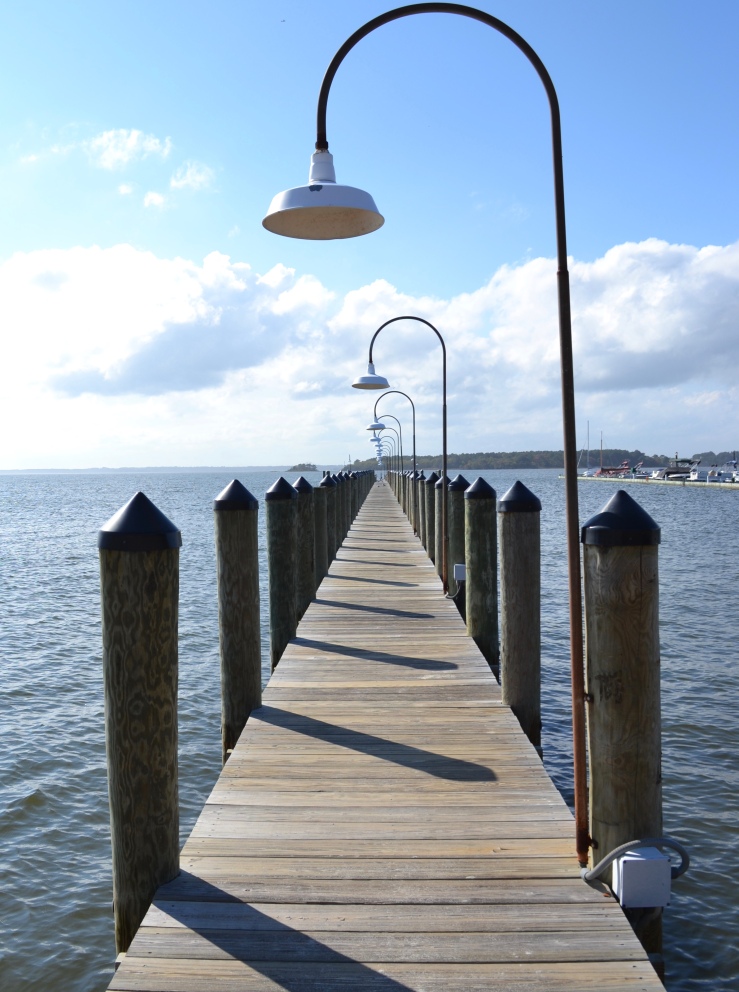
Next time: Drinking as a feminist issue.
A new resource I’ve been devouring lately:
Take a Break from Drinking – Rachel Hart has a very different way of looking at drinking, which some may find controversial. Her podcast is full of lots of helpful advice, even if you don’t fully sign onto her philosophy. I do recommend going back to the beginning and listening to the first couple episodes before jumping around. Other key episodes include 7, 11, 13-19, 25, 28, and 32.

Love you, dear Lisa. So glad you have found this happiness, this energy.
LikeLike
[…] time: Why did I start drinking? What kept me coming back? What are the advantages of sobriety? What might cause me to abandon the […]
LikeLike
These are questions we all ask ourselves I think. At least those who struggle with the issue of should I quit for good or try to moderate. I’m on day 50 of my now 365 Day journey (but already thinking that this may be a permanent thing)
LikeLike
[…] Five Questions at Five Months – A review of why I started drinking and why I chose to stop rather than continue trying to moderate […]
LikeLike